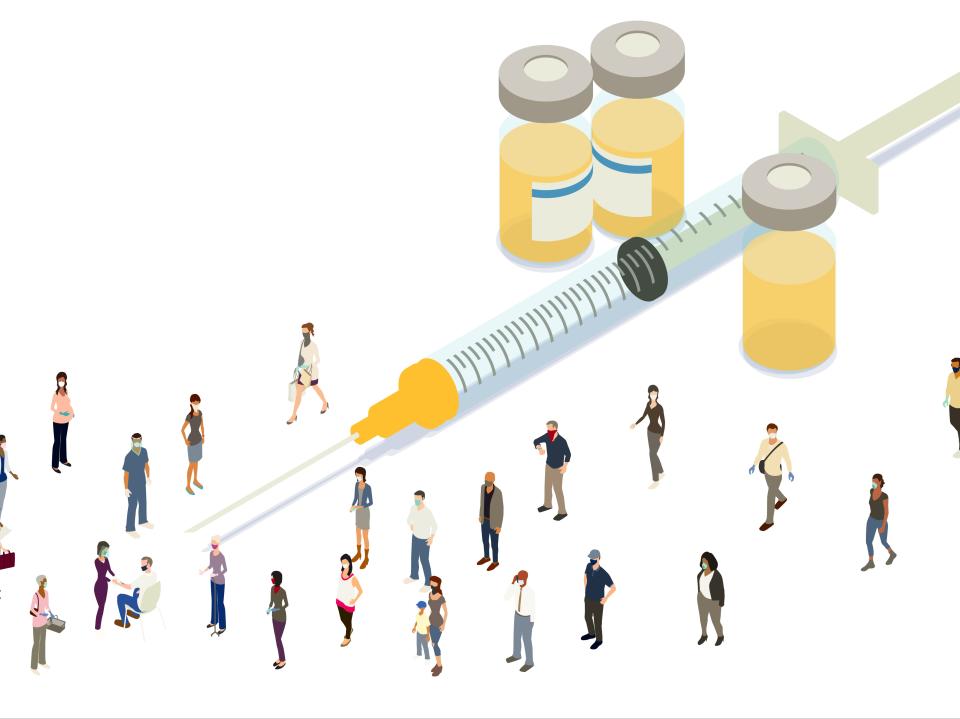‘I know it’s irrational’: Could treating needle phobia reduce Covid vaccine hesitancy?

A new study by the University of Oxford’s psychiatry department found that individuals with an injection phobia were twice as likely to report that they were hesitant to get the Covid-19 vaccine.
According to the research, which surveyed a representative group of 15,014 UK adults, a quarter of the adult population screened positive for a potential needle phobia and as a result, were more likely to put off getting vaccinated or never get the jab.
The survey shows that vaccine hesitancy is slightly higher among young people and certain ethnic minority groups. However, it is not just vaccine skepticism that contributes to this, but injection fears as well, researchers say.
Published in the journal Psychological Medicine, the study indicates that if all injection anxiety was removed, then just over 10 per cent of instances of vaccine hesitancy could disappear too.
Needle phobia, also called trypanophobia, is a recognised psychiatric condition that induces severe feelings of dread and anxiety around getting injections.
Albert Young, 29, from London, told The Independent he has been feeling highly anxious since he became eligible to get the vaccine last week.
As his first vaccine appointment draws closer, he has felt his heart rate rise and his hands become sweaty whenever he thinks about the injection and has considered rescheduling it to a later date.
“I know it’s irrational, that the injection itself doesn’t hurt,” he told The Independent. “But I still feel extremely anxious and fearful when I think about it, I can’t even watch people getting the jab on television.”
Professor Daniel Freeman, who led the study, said: “For people with injection phobia, the sight, say, of a hypodermic needle will prompt an initial increase in heart rate and blood pressure.
“This may be swiftly followed by a sudden decline in both. When that happens, some people faint. The Covid-19 vaccination programme means that almost everyone has had – or will soon have – to face the needle.
“Some people may certainly think twice about joining a queue for a vaccine if they fear that they might topple to the ground,” he added.
Potential treatment for needle phobias include cognitive behavioural therapy (CBT), which involves gradual exposure to needles and injections, said Prof Freeman.
“Fainting can be tackled too. Patients can be taught how to recognise the early signs of a dip in their blood pressure and to combat this drop by applied muscle tension.”
According to the NHS, medication is not usually used to treat phobias but can sometimes be prescribed to help people cope with the effects of anxiety. These include medications such as antidepressants, tranquillisers or beta blockers.
Some people may certainly think twice about joining a queue for a vaccine if they fear that they might topple to the ground
Young chose to get medication to help manage his anxiety on the day of the vaccination, but is willing to try other treatments for his second jab later this year.
“It’s too late now [for longer term treatments], my first jab is on Friday,” he said. “But in the long term, getting proper treatment might be good for the future.”
Helen McShane, professor of vaccinology at the University of Oxford, added: “There are many different reasons for why people are hesitant about receiving a vaccine. A fear of needles is a significant factor in up to 10 per cent of people who are vaccine hesitant.
“Whilst needle-free routes of vaccinations, such as via the nose, are being explored, at present the only approved routes of vaccination for Covid-19 vaccines are by injection.
“Understanding the underlying causes of this helps us address specific interventions that ultimately will increase vaccine uptake.”
Read More
Man allegedly fails drug test for new job after eating Tesco poppy seed bread

 Yahoo Movies
Yahoo Movies 